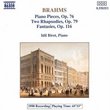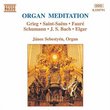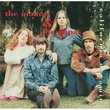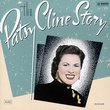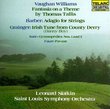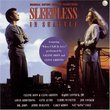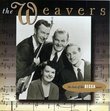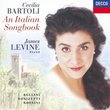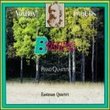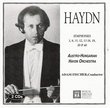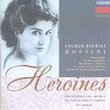| All Artists: Franz Joseph Haydn Title: Haydn: String Quartets, Op. 20 "Sun", Nos. 1-3 Members Wishing: 0 Total Copies: 0 Label: Naxos Release Date: 2/15/1994 Genre: Classical Styles: Chamber Music, Historical Periods, Classical (c.1770-1830) Number of Discs: 1 SwapaCD Credits: 1 UPCs: 730099570121, 4891030507012 |
Search - Franz Joseph Haydn :: Haydn: String Quartets, Op. 20 "Sun", Nos. 1-3
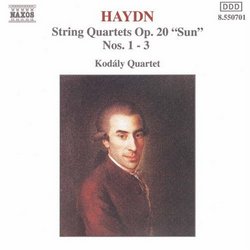 | Franz Joseph Haydn Haydn: String Quartets, Op. 20 "Sun", Nos. 1-3 Genre: Classical
Haydn's Op. 20 string quartets are widely considered to be works with which the mature classical style more or less came of age. That makes them critically important historically, but they are also no less worthy artistica... more » |
Larger Image |
CD DetailsSynopsis
Amazon.com Haydn's Op. 20 string quartets are widely considered to be works with which the mature classical style more or less came of age. That makes them critically important historically, but they are also no less worthy artistically. While the next set of quartets, Op. 33, would introduce a wholly new kind of humor to classical music, these pieces are much more serious. Two of the quartets are in minor keys, and one of them--Op. 20, No. 3--had a deep and lasting impact on Mozart especially, being written in his special "tragic" key of G minor. The Kodaly Quartet is slowly working its way through all 68-1/2 Haydn quartets, and at a budget price these excellent performances offer an ideal opportunity to get to know some of the greatest music in Western civilization. --David Hurwitz Similar CDs
Similarly Requested CDs
|
CD ReviewsDiscovering the Haydn Quartets on Naxos Robin Friedman | Washington, D.C. United States | 02/06/2004 (5 out of 5 stars) "Joseph Haydn (1732-1809)probably did more than any other composer to shape the symphony and the string quartet into the forms that became essential to subsequent Western music. In his more than 80 quartets, Haydn developed the form from various forms of light musical diversions to the most weighty form of chamber music -- or of all art music. In Haydn's quartets, the instruments speak to and with each other, sometimes seriously sometimes humorously, in an intimate conversation of part-writing that both shows the string quartet in full development and also prepares the way for quartets by later composers.The Kodaly quartet, the performers here, are Hungarian musicians who have been playing as a unit since 1970. They have recorded all the Haydn quartets for the budget-priced Naxos label. They do an outstanding job on this music, and the low price should encourage listeners to explore these quartets. Haydn remains an undervalued composer and has unjustifiably remained in the shadow of Mozart and his great pupil, Beethoven. The quartets are available in one large collection or on a disk-by-disk basis. I much prefer the later approach as I find it encourages me to spend more time with each individual work. In addition, it allows for the anticipation of fresh discovery as I get the opportunity to explore additional quartets.This disk includes the first three of the quartets that Haydn published as a set of six in 1772. They are known as the "Sun" quartets because of the sun that appeared on the fronticepage of the first edition.These three quartets are all serious and elevated in tone -- with little of the humor that is sometimes a Haydn feature. Each of the quartets has as a highpoint a long, expressive slow movement. Those unfamiliar with Haydn may be surprised at the depth he shows in his adagios. The third quartet in particular, the quartet in G. minor, is unusual in that the slow movement, the third movement marked "poco adagio" is over ten minutes in length, far in excess of the opening allegro (six minutes). The movement opens with the four voices playing together a slow theme in the major, followed by a statement in the violins over a countertheme in the cello The theme ultimately broadens out with solo passages for each instrument, with the main theme stated finally by the violin and cello. The thematic development of this movement is stated twice in its entirety.The remaining three movements of the third quartet are predominantly in the minor, although the quartet closes quietly in G major. The first movement features a brusque minor theme and a trilled figure in the upper strings. The second movement minuet also features a minor opening and contrasting themes for the first violin in the movement proper and in the trio. The final movement is a rondo with a minor theme and episodes in the major key.The first two quartets of opus 20 are in E-flat major and C major. I found these quartets marked by their tranquil, serene, and intimate character. The E-flat quartet creates this mood at the outset with an opening, moderately fast theme followed by a slower second theme. There is close and intricate part-writing and voice leading throughout this fine quartet. The minuet features solo passages for the first violin and thematic material that alternates between the major and minor key. The third movement marked "affetuoso e sostenudo" is another beautiful slow movement. The final movement is lively with contrasting writing for the violins and the lower strings.The second quartet, in C-major also conveys a feeling of serenity. Its opening movement features a theme first stated in the cello. The second movement is marked "Cappricio:adagio". It is in two sections, with the second much slower than the first. The passages for solo instruments in this movement are juxtaposed against passages in which the quartet plays together, and there is much solo writing for the cello. The third movement is a minuet, much faster than the second movement with a slower, smoother trio. There are passages for the upper register of the violin and for the solo cello in the trio. The final movement is a spirited but hardly boisterous fugue which shows Haydn's great skill in contrapuntal writing.In listening to this disk, I imagined myself in a music room or intimate hall sharing in the joy of music-making. Although these quartets were written relatively early in Haydn's quartet-writing career, they show an awareness of the potentialities of the string quartet. These quartets are wonderful and accessible. The listener wishing to explore Haydn's quartets will enjoy this disk and other disk's in the Kodaly's cycle of Haydn quartets." Outstanding stonechat | hyperspace | 04/23/2002 (5 out of 5 stars) "Don't agree with the other reviewer (SJT). These are beautiful works beautifully performed, my favorite Haydn: serious and quiet music. The melody of the 2nd movement of No. 25 is genius, in my view. I have Op. 76 too, which I also like, though not quite as much as these. In this vein, allow me also to recommend the Boccherini quintets played by Ensemble 415 on Harmonia Mundi: one disc of quintets with two violas, the other of quintets with double bass, both at near-Naxos price." Understated music of the gods Mr. Hasta Pasta | Oz, Lithuania | 12/27/2006 (5 out of 5 stars) "Surely the string quartet is the King of Musical Art Forms, and Haydn's achievements in this form that he nutured and pioneered has never been surpassed, and obviously never can be. Though I'm not aware of the circumstances under which his so-called "Thirty Famous Quartets" were selected, the fact that the first three quartets of op. 20, which are recorded here by the Kodalys, weren't included in the bunch seems to be evidence that the selection process was arbitrary and perhaps even fatuous, for Opus 20 contains some of Haydn's very greatest music. Was the Famous Thirty, I wonder, little more than a publisher's grab bag from the embarrassment of riches of Haydn's compositions? The first quartet of the opus (E flat major) for example, is one of the most sublime, artless, and achingly beautiful creations not only in Haydn's output, but in all of music. How can it be that something so great could have been relegated to the status of a second-class citizen for so many years? Every one of Mozart's ten great string quartets (he also wrote 13 clunkers) are performed and recorded with awesome regularly; Ditto Beethoven's 16 great ones. Why not Haydn's?
Well, one reason is that Haydn produced so many more great works than his compatriots in the "First Viennese School" in this sublime, arduous form that it confused people. The other reason can be found in the fact that for many if not most classical music listeners, Haydn has never quite been given his due regard as one of the three or four greatest composers in history (and quite possibly, along with Bach, one of the two greatest). This is a shame that I think should be rectified, and the only way to do that, really, is to LISTEN. Anyway, the six masterpieces that comprise the so-called Sun Quartets are a revolutionary attainment, at least as important as Beethoven's five "late" quartets, where Haydn finally throws off the vestigial artistic shackles of the divertimento and therefore, after much hard work, devises the classical string quartet in its undying glory. In comparison composers such as Schubert, Brahms, Schumann, Debussy, Ravel, Shostakovich, Bartok, Berg, and Schoenberg, though all undeniably great quartet writers, are second-tier next to Haydn. As a listener, I'm no conservative, and it took me about twenty years of obsessive listening to classical music to realize this, but I'm glad I finally did. For those uncertain about Haydn as a quartet composer, short of venturing to the library, the Kodalys on Naxos is as painless and inexpensive a way to start, and features some very fine performances. I would suggest by starting out with the two CDs that constitute Opus 20, and the two that constitute Opus 76. That's twelve works of sublime, profoundly moving, deathless music for under forty bucks! Or heck, pick one or two of the four CDs! Listen with open ears and it's quite possible you will want to acquire all of the recordings of the Kodalys of Haydn's unsurpassable masterpieces. " |

 Track Listings (12) - Disc #1
Track Listings (12) - Disc #1